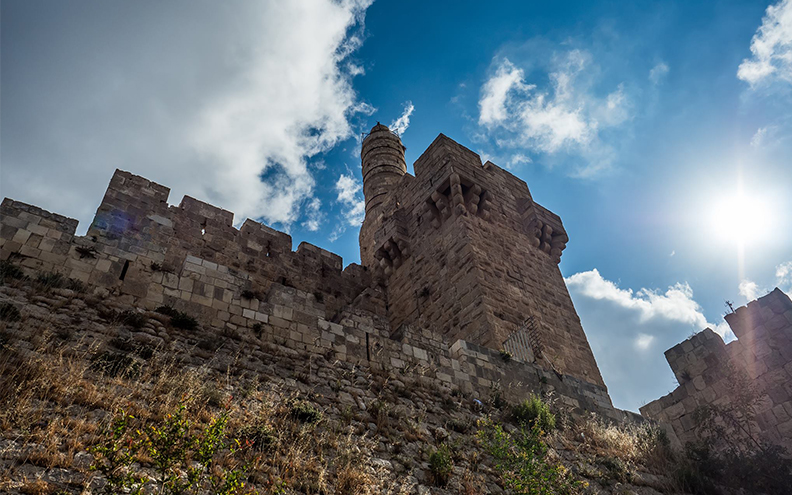Do Not Depart from Jerusalem

“Do Not Depart from Jerusalem” — these words of the Lord, directed toward His disciples, carry profound spiritual meaning. In the Book of Acts, we read: “And being assembled together with them, He commanded them not to depart from Jerusalem, but to wait for the Promise of the Father, ‘which,’ He said, ‘you have heard from Me; for John truly baptized with water, but you shall be baptized with the Holy Spirit not many days from now'” (Acts 1:4-5). Jerusalem symbolizes more than just a geographical location; it represents a spiritual stance of unity and anticipation of God’s promises.
The Lord clearly distinguishes responsibilities: “God has His task, and you have yours.” Often, believers seek to understand the times and seasons, yet Jesus explicitly said: “It is not for you to know times or seasons which the Father has put in His own authority” (Acts 1:7). Most crucially, according to Christ, believers are called to be witnesses of His life, death, and resurrection, beginning from Jerusalem and reaching out “to the end of the earth” (Acts 1:8).
Despite pressure from the Roman Empire and challenging circumstances, the apostles chose to remain in Jerusalem, faithfully adhering to Christ’s instruction. It was precisely in this city that they received the extraordinary gift—the baptism of the Holy Spirit—that altered the course of history. However, the Temple’s destruction was caused not simply by the Romans but by internal discord—lack of love and an abundance of hatred, illustrating the principle that evil inevitably attracts evil.
After receiving the Holy Spirit, the disciples realized that their mission transcended earthly kingdoms. They understood that Christ would not become a worldly king based on human desires; just as with David, His kingship was appointed by God rather than demanded by people. This spiritual revelation dismantled earthly nationalism and refocused their efforts on their spiritual calling.
“Do Not Depart from Jerusalem” remains relevant today. The Lord still calls His children toward unity and fellowship in the Spirit. Acts chapter two describes how the disciples “were all with one accord in one place” (Acts 2:1). This unity was initially grounded in the Word and subsequently manifested spiritually. True spiritual unity is unattainable without foundational unity in the Word of God.
Today, it is essential to dwell in this spiritual “Jerusalem,” where God’s living Word resonates. “Suddenly there came a sound from heaven, as of a rushing mighty wind, and it filled the whole house where they were sitting” (Acts 2:2). This “suddenly” symbolizes key spiritual breakthroughs that arise from the steadfast unity and faithfulness of God’s people.
God established apostles and ministers in the Church to guide believers toward fulfilling His will. Divine intentions are revealed through these spiritual leaders rather than through politicians or human ambitions. Now is the time for believers to stand united, enabling the Holy Spirit to move freely and powerfully among them.
God restored Israel and Jerusalem, fulfilling prophetic words spoken millennia ago. The State of Israel was declared in 1948, and Jerusalem came back under Jewish control in 1967. This signifies clearly that spiritual revival and significant events are profoundly linked to this people and this land of Israel.
Modern believers must recognize the spiritual warfare surrounding them, employing spiritual tools such as prayer and proclaiming God’s Word. Historically, victory was assured when the Levites, praising God, led the army. Thus, believers today must understand the spiritual dimension of current events rather than focus solely on external realities.
“Do Not Depart from Jerusalem” serves as a compelling reminder for believers to stay united and obedient to God’s Word. If we desire to witness God’s power and glory in our lives, we must remain where His presence resides, His Word is proclaimed, and His Spirit actively moves. Then, just as in ancient times, we will experience a profound spiritual awakening spreading across nations and territories.
Pastor Oren Lev Ari
